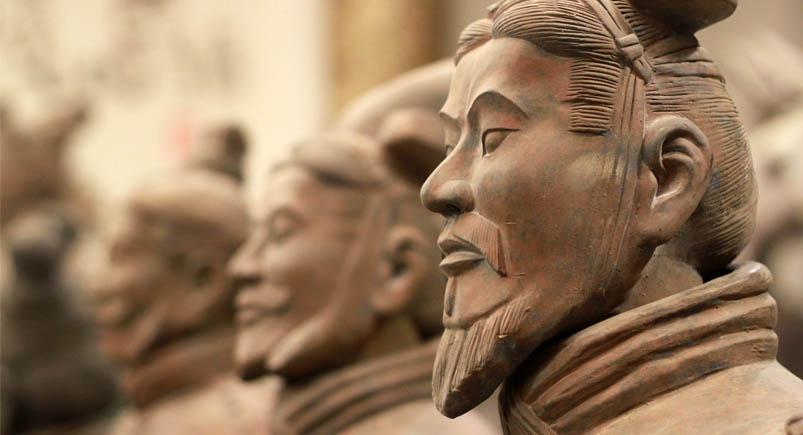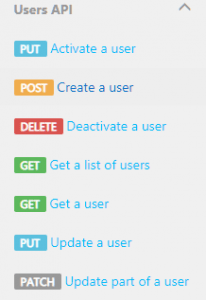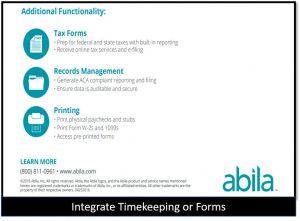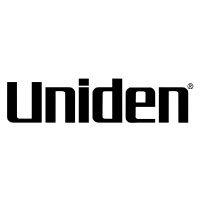
Genghis Khan, born Temujin, was the first ruler of the Mongolian Empire. He united the Mongolian tribes and forged the largest contiguous empire to ever exist, its borders spanning a total area about the size of Africa. While arguably the greatest conqueror in history, his penchant for violence being world-renowned, Genghis was also a rather astute businessman. With a wealth of knowledge on project management, Genghis Khan is an ideal candidate for our segment, “Questions for Conquerors,” facilitated by our resident correspondent, Alec Aksovd.
Without further ado …
Alec Aksovd: Genghis Khan! The Big G! Mr. “If he can’t do it, no one Khan!” Thank you for joining us today. I’ll go ahead and jump right into the thick of things: What do you think a good leader should provide for a growing enterprise?
Genghis Khan: First and foremost, a leader must have a vision! I saw what the Mongolian tribes were and what they could be. There was great potential, but the tribes would rather bicker and fight one another. Bah!
AA: Sounds like there was plenty of family feuding! How does a good leader overcome that kind of obstacle?
GG: Well, a good leader must be willing to take measures to realize the vision, regardless of how uncomfortable they may be. I united the tribes then organized them into units of mixed ethnicity. No longer would each soldier find their loyalty in their tribe. Only loyalty in the vision of Genghis!
AA: How did you get everyone to move on one accord?
GG: As the head directs the body, so must the body inform the head. Clear channels of communication are necessary for movement, whether in a growing Mongol horde or an expanding small business.
AA: Understood. Well, with the tribes united and the army moving along we can assume that your practices for brokering deals were less “let’s do business together” and more “join us or we chop your head off!” Could this be problematic for a growing business?
GG: Well, now … I believe that’s a bit of a skewed statement. Yes, my hordes were willing to crash with the force of one thousand waves and reduce a city’s population to dust if need be. I won’t deny that. However, the Mongolian Empire did more than put those who opposed them to the sword. We fostered a welcoming environment throughout the entirety of the empire.
AA: The looming threat of death doesn’t exactly scream, “Welcome to Disneyland, the happiest place on earth.”
GG: While your attempts at humor bear some truth, please consider that with any expanding enterprise one must create a sense of value within each and every person. Skilled workers of newly conquered territories were spared and allowed to continue their work for the good of the newly formed empire. One must also foster an environment where, despite differences in belief or appearance, people feel welcome. Within my realm, religious freedom was permitted. Neither clergymen nor the poor were subjected to taxation.
AA: Now that sounds welcoming!
GG: Quite.
AA: But Genghis … with any expansion there are obstacles that face the business, both internally and externally. How do you suggest growing businesses handle negative elements?
GG: With ruthless efficiency.
AA: Eh … Ahem. Care to expound?
GG: Elements that inhibit the progress of a business must be removed, regardless of how…uncomfortable it may be to get rid of them. My uncles were chieftains of rival tribes. They opposed me. I removed them. Rulers of lands I sought opposed me. I removed them. My older half-brother opposed me. I removed him.
AA: Ah, did he oppose you after you had come into power?
GG: No. I was nine.
AA: Oh.
GG: Once the Mongolian tribes were united, I established a Pax Mongolica. It forbade infighting between anyone under my rule. Offenders were met harshly and, usually, with death. It is with that sense of absoluteness should a business abide by its rules. These rules shape the culture of and provide structure to the company.
AA: And violators are termites in the integrity of the company?
GG: You’re smarter than you look.
AA: Thank you for your time and insight Mr. Khan. The Mongolian Empire applied its strengths with ruthless efficiency, carving out their place on both the landscape and within the pages of history. While nearly an entire millennium has passed, their practices are still relevant to the small business aiming to broaden its horizons. Understanding when to make aggressive moves versus when to bide your time are maneuvers straight out of Genghis Khan’s playbook. Small businesses looking to expand benefit from leaders with clear vision and direction. A welcoming environment is necessary to foster longevity, but anything that detracts from the enterprise’s growth must be removed with finality. If it worked for Genghis and his empire, it might just work for you and your business.
WARNING: While Genghis and his hordes were more likely to “burn and pillage first, parlay later,” arson is generally frowned upon in the business community. Please consult your nearest fire department for fire safety do’s and don’ts. Thank you.
Have any questions on how Actsoft can help you?

















 Encore & Geotab Drive
Encore & Geotab Drive



























 Gain even greater insight into the daily activities of your fleet using the combination of Geotab and Actsoft. Geotab devices provide detailed data collection and seamless integration with our solutions; learn more about the ways your vehicles are being used daily with the power of this tandem.
Gain even greater insight into the daily activities of your fleet using the combination of Geotab and Actsoft. Geotab devices provide detailed data collection and seamless integration with our solutions; learn more about the ways your vehicles are being used daily with the power of this tandem.



 Actsoft partnered with Odin to provide our solutions overseas, through payment processing integrations. Odin helps us support user management for our software; customers can also purchase our products through Odin’s billing platform.
Actsoft partnered with Odin to provide our solutions overseas, through payment processing integrations. Odin helps us support user management for our software; customers can also purchase our products through Odin’s billing platform.

 VisTracks powers our Electronic Logging Device (ELD) solution, which enables transportation businesses to easily automate their hours of service logs, remain in governmental compliance, and reduce their potential to incur costly fines.
VisTracks powers our Electronic Logging Device (ELD) solution, which enables transportation businesses to easily automate their hours of service logs, remain in governmental compliance, and reduce their potential to incur costly fines. Integration between Actsoft solutions and BeWhere’s software products is available. Take your team’s asset tracking, cellular data connectivity, and field insight a step further with effective, cross-application compatibility.
Integration between Actsoft solutions and BeWhere’s software products is available. Take your team’s asset tracking, cellular data connectivity, and field insight a step further with effective, cross-application compatibility.
 CalAmp tracking devices for vehicles and assets alike are compatible with Actsoft solutions, making it easy for you to efficiently monitor your equipment and fleet cars. Help your team enhance accountability, safety, and savings through a combination of easily installed hardware and intuitive software.
CalAmp tracking devices for vehicles and assets alike are compatible with Actsoft solutions, making it easy for you to efficiently monitor your equipment and fleet cars. Help your team enhance accountability, safety, and savings through a combination of easily installed hardware and intuitive software. Our partnership with Uniden is ideal for companies looking to gain advanced diagnostics on their fleets. Uniden’s extensive product listing of car electronics like radios, dash cams, radar detectors, and in-vehicle communicators work in concert with Actsoft’s solutions to better connect your vehicles to the company headquarters.
Our partnership with Uniden is ideal for companies looking to gain advanced diagnostics on their fleets. Uniden’s extensive product listing of car electronics like radios, dash cams, radar detectors, and in-vehicle communicators work in concert with Actsoft’s solutions to better connect your vehicles to the company headquarters. Kyocera offers a wide range of mobile devices, ranging in design from traditional phones to ultra-durable handset technology. Actsoft is able to equip organizations in a variety of different industries with solutions for improved business, while Kyocera supplies the technology they can flawlessly operate on.
Kyocera offers a wide range of mobile devices, ranging in design from traditional phones to ultra-durable handset technology. Actsoft is able to equip organizations in a variety of different industries with solutions for improved business, while Kyocera supplies the technology they can flawlessly operate on.

 Our software is the perfect complement to Apple’s user-friendly technology. Equip your workforce with the devices and solutions it needs for optimized productivity during daily operations with Apple and Actsoft.
Our software is the perfect complement to Apple’s user-friendly technology. Equip your workforce with the devices and solutions it needs for optimized productivity during daily operations with Apple and Actsoft.
 Actsoft and Sanyo teamed up to merge intuitive business management software with the technology of today. This partnership allows us to provide you with all the tools your team needs for improved workflows, better coordination, and optimized productivity.
Actsoft and Sanyo teamed up to merge intuitive business management software with the technology of today. This partnership allows us to provide you with all the tools your team needs for improved workflows, better coordination, and optimized productivity. Motorola’s mobile technology works in tandem with our solutions to provide extra versatility to your business practices. Coupled with our software’s features, Motorola’s reliable devices make connecting your workforce simpler than ever to do.
Motorola’s mobile technology works in tandem with our solutions to provide extra versatility to your business practices. Coupled with our software’s features, Motorola’s reliable devices make connecting your workforce simpler than ever to do. We’re able to bundle certain solutions of ours (including our Electronic Visit Verification options) with Samsung devices to help your team achieve as much functionality as possible, while keeping rates affordable. Use these combinations for accurate recordkeeping, improved communication, and smarter data collection in the field.
We’re able to bundle certain solutions of ours (including our Electronic Visit Verification options) with Samsung devices to help your team achieve as much functionality as possible, while keeping rates affordable. Use these combinations for accurate recordkeeping, improved communication, and smarter data collection in the field.